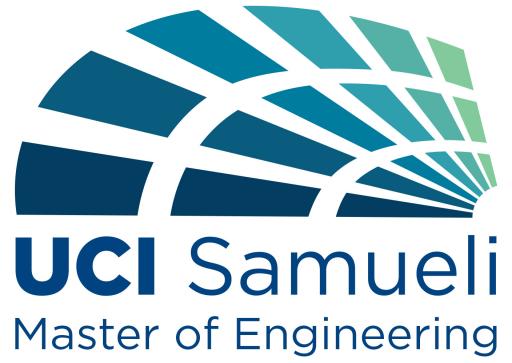Course information
Engineering Leadership and Entrepreneurship (Core)
Have you ever wondered why organizations pass on great ideas or how organizations take ideas and research and create successful products or services? M.Eng offers a three part course sequence answers these questions and gives engineers the capability to generate disruptive ideas and transform them into actual ventures. Through experiential learning, based upon real world environments, students learn concepts and apply them on actual projects that create tangible value, require people management, and grow leadership skills. In Innovate- Build- Launch, each quarter students will take a deeper look into an aspect and stage of a business, and how it applies to their professional journey.
Students also have the choice to enroll in people and project management courses that will strengthen their skills to become a technical leader. Technical Project Management and People Management and Communications.
Capstone Project (Core)
The M.Eng program believes in learning by doing. Interdisciplinary teams of M.Eng students are paired with corporate partners to work on an industry driven projects that are formulated to address real world unmet needs in the marketplace. Oversight and mentorship provided by the company allow students to gain not only valuable technical skills, but also work experience enhancing their resume. Through this experiential learning portion of the program, students get a feel for what it takes to be a technical worker and leader.
Students enroll in two quarters of the Capstone Project course. Enrollment can be over Winter and Spring, or Summer and Fall.
Click HERE to view past capstone projects.
M.Eng applicants apply directly to a concentration. Admitted studetns are eligable to take courses within their concentration and interdisciplinary course, regardless of the tracks.
Interdisciplinary Courses:
These courses are open to All Concentrations
- Introduction to Machine Learning
- Personalized Medical Devices
Biomedical Engineering: BioEngine
- Biomedical Big Data
- Biomedical Imaging & Biophotonics
- Molecular and Cellular Engineering
- Clinical Medicine for BME
- Functional Medical Device Development
- Brain Computer Interface
- Engineering Medical Optics
- Analysis of Neural Time Series
electrical Engineering and computer science:
Digital & Image Signal Processing
- Digital Image Processing
- Computer Architecture
- DSP Architecture & Design
- Random Processes
- Digital Communications
- Digital Signal Processing
communications circuits & systemS
- Random Processes
- Digital Communications
- Wireless Communications
- Digital Signal Processing
- Analog Integrated Circuit Design
- Optical Communications
Advanced Manufacturing:
- Additive Digital Manufacturing
- Advanced Manufacturing and Design
- Robotics and Controls
- Fundamentals of Microfabrication
- Engineering Design & Simulation: Tools and Process
- Introduction to Machine Learning
Mechanical and aerospace engineering:
Autonomous and Intelligent Machines and Systems
- Professional Engineering Fundamentals
- Robotics and Control
- Model-Based System Engineering & Design
- Cyber-physical Systems and Computer Vision
- Engineering Design & Simulation
Sustainable Energy Systems
- Sustainable Energy
- Solar & Renewable Energy Systems
- Professional Engineering Fundamentals
- Energy Efficiency in Built Environment
- Engineering Design & Simulation
Nanotechnology and Microsystems
- Micro-System Design
- Professional Engineering Fundamentals
- Micro-Sensors and Actuators
- Engineering Design & Simulation: Tools and Process
Civil and Environmental Engineering:
Sustainable InfrastructurE
- Life Cycle Assessment Methods
- Green Building Design
- Organizational Pollutant Emissions Accounting
- Fundamentals of Sustainable Engineering
- Sustainable Transportation
- Transportation Policy and Technology
- Smart Cities
Data Science in Civil & Environmental Engineering
- Data Science Programming and Optimization
- Data Analytics for Civil Engineers
- Data Analytics for Flexible Electricity Distribution systems
- Data Analytics for Building Energy Operations Optimization
- Smart Cities
- GIS and Spatial Data Analytics
- Remote Sensing of the Environment
* The list of course information above is subject to change.
Apply to the M.Eng Program
Apply by the December 15th Priority Deadline.
